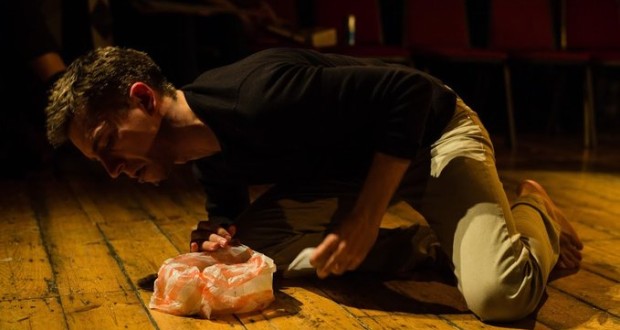Pros: An original take on the alienation of ‘the other’ in society. Many unexpected laughs.
Cons: Parts of the play could have been streamlined – it took a long time to get from A to B. A paranormal mystery with some 'bite'!
Summary
Rating
Good
When the subject of the supernatural appears in a play, it is often in the form of a ghost story. Seldom do they involve werewolves! However, like many a good author, Matt Osman uses the paranormal as a metaphor to speak about more grounded things.
The Boy Who Cried begins with Mrs Sylvia Elvin (Shelley Lang), who receives a visit from the authorities at her behest. Easy-going Sylvia finds that Protection Officer Johnson (Jake Curran) has no time for small talk; he hints that her son may have something to do with a missing girl that’s all over the news. It is clear that Sylvia is not 100% sure what the parameters of his powers are or the ramifications this will have for her son.
This premise sounds Kafkaesque, but actually there are many laughs to be found in the play. These primarily arise during the first half from Lang’s convivial and bohemian trainee officers Talbot and Spencer (Loz Keystone and Hamish MacDougall), who habitually make the faux pas of referring to Elvin’s son as ‘it’ and not ‘him’. With the use of humour, Osman deftly alludes to the dehumanising effect language can have on others and the way people think.
Thompson’s relationship with Sam (Sylvia’s son and alleged lycanthrope) is similar to Dysart’s relationship with Alan in Peter Schaffer’s Equus, in that for Thompson and Dysart finding answers are of paramount importance. Then we have Sam and Alan: young men associated with animals, initially reticent to talk and thought to have brought harm to others.
Played by Jordan Mallory-Skinner, Sam in his hoodie initially gave the impression of being a stereotypical moody youth. However, we later see why he is understandably withdrawn, and that he is both intelligent and verbose. At times Sam talks in verse like the poetry of Edgar Allan Poe, and on another occasion he wears a suit – asking Thompson a series of questions, as if he’s interviewing him for a job. By responding in a purposeful, articulate fashion, Sam temporarily robs Thompson of the excuse to think of him as a ‘beast’.
The second half of the play was more like a Dennis Lehane novel in tone, as the emphasis was on Thompson striving to secure a confession or some damning evidence before 28 days were up. It wasn’t explicitly stated, but the parallels of this with high-profile cases in domestic and international affairs were fairly obvious. The one thing that came to mind during the play was a quote by Nietzsche. As this play is littered with literary references, I’m sure this apt quote was what Osman had in mind when writing about werewolves: “He who fights with monsters should look to it that he himself does not become a monster. And when you gaze long into an abyss the abyss also gazes into you.” The question Osman raises, is under such circumstances, who is the real ‘monster’?
If I were to make one critical comment about The Boy Who Cried, it’s that as amusing as the peripheral scenes were, such as the news reports and the weather, they slowed down the main narrative and made the play feel longer than it should. I’m sure at the writing stage, with a bit of forethought, some of these scenes could be told more succinctly.
This was my first visit to The Hope Theatre and while I felt elements of the play could be tweaked, it was certainly different from the usual fare performed on the fringe. I look forward to visiting The Hope again and seeing another original play that’s not afraid to take risks.
Author: Matt Osman
Director: Mary Franklin
Producer: Rough Haired Pointer
Box Office: 0207 478 0160
Booking Link: http://kingsheadtheatre.com/hope-theatre.html
Booking Until: 29th March 2014
 Everything Theatre Reviews, interviews and news for theatre lovers, London and beyond
Everything Theatre Reviews, interviews and news for theatre lovers, London and beyond



